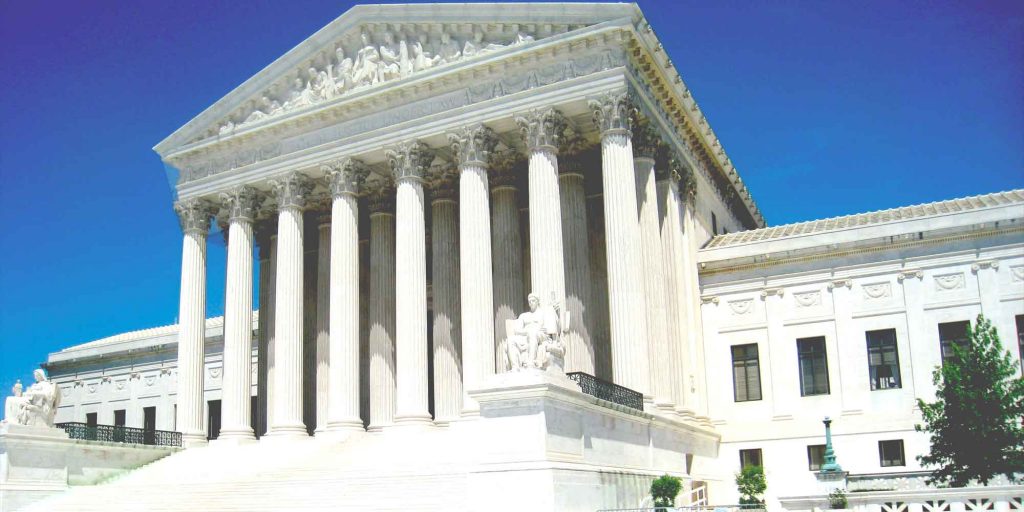In McDonough v. Smith1, the Supreme Court considered when the statute of limitations begins to run on a constitutional claim that a state official used fabricated evidence to initiate and continue a criminal prosecution. The issue here is whether the statute of limitations for a Section 1983 claim based on fabrication of evidence in criminal proceedings begins to run when those proceedings terminate in the defendant’s favor, as the majority of circuits have held, or whether it begins to run when the defendant becomes aware of the tainted evidence and its improper use, as the U.S. Court of Appeals for the 2nd Circuit held below.
Facts
During a 2009 primary election in the City of Troy, New York, several individuals forged signatures and provided false information on absentee ballots in order to affect the outcome of that primary. Those individuals then submitted the forged absentee ballot applications to Edward McDonough, who was responsible for processing those applications. McDonough approved the forged applications but subsequently claimed he did not know that they had been falsified. The plot to influence the primary was eventually discovered. The state court then appointed Youel Smith as a Special District Attorney to lead the investigation and potential prosecution. McDonough claimed that Smith then engaged in an elaborate scheme to frame McDonough for the crimes by, among other things, fabricating evidence. McDonough claims that Smith presented the fabricated evidence to a grand jury. The grand jury subsequently indicted McDonough on numerous counts. The case against McDonough proceeded to trial but ended in a mistrial. McDonough was then retried, again with Smith as the prosecutor. That trial ended in McDonough’s acquittal on December 21, 2012.
On December 18, 2015, McDonough filed this action under 42 U.S.C. § 1983, claiming that the Defendants (including Smith) (1) had violated his right to due process by fabricating evidence and later using it against him before the grand jury and in his two trials and (2) were liable for malicious prosecution. Defendants filed motions to dismiss McDonough’s due process claim. They argued, in part, that it was barred by the applicable three–year statute of limitations because the allegedly fabricated evidence had been disclosed to McDonough, and his claim therefore accrued, well before the second jury acquitted him. McDonough argued that because his fabrication of evidence claim was based on the actions of Smith, a prosecutor, it was analogous to a malicious prosecution claim, and therefore did not accrue until the second trial terminated in his favor. McDonough also contended that his due process claim did not accrue until the termination of the second trial.
Findings
The district court dismissed McDonough’s due process claims against all Defendants as untimely and his malicious prosecution claim against Smith on the basis of absolute prosecutorial immunity. The 2nd Circuit Court of Appeals affirmed ruling that McDonough could not pursue these claims because he filed suit after the statute of limitations had expired. That limitations period, the court said, began running as soon as McDonough knew or should have known that fabricated evidence was being used against him. McDonough filed a petition for certiorari, and the Supreme Court agreed to hear the case.
Supreme Court
The Supreme Court reversed; in a 6-3 opinion, the Court held that the statute of limitations on a Section 1983 claim of fabricated evidence does not start until the criminal proceedings have ended. The Court relied in part on similarities between constitutional claims for fabricated evidence and tort claims for malicious prosecution, while reaffirming that such comparisons “are meant to guide rather than to control the definition of § 1983 claims.” The Court also relied on practical considerations, explaining that forcing criminal defendants to sue while their prosecutions are still ongoing would impose on them “an untenable choice” between letting their claims expire and “filing a civil suit against the very person who is in the midst of prosecuting them.”
The Court explained that this requirement is based on pragmatic concerns with avoiding parallel criminal and civil litigation over the same subject matter and the related possibility of conflicting civil and criminal judgments. Thus, only when the criminal proceeding has ended favorably to a defendant can that defendant sue for malicious prosecution at common law. And only at that point did McDonough have a complete and present cause of action for the loss of his liberty, which is required for a claim to accrue for purposes of the statute of limitations. Because McDonough sued within three years of his acquittal, his claim was timely.
Wrap Up
It is crucial that a section 1983 plaintiff identify with some specificity just what is challenged as unconstitutional and under what constitutional provision. Is it an arrest? Is it a conviction? Is it custody? Is the claim brought under the Fourth Amendment or due process or both (or perhaps another constitutional provision)? This is an important lesson that the dissenters (and the Court’s section 1983 cases) teach.
Regardless of whether wrongful prosecutions lead to convictions that are eventually overturned, to acquittals, or to dismissal of all charges wrongfully brought, the accrual rule is now appropriately the same where the section 1983 challenge is to the constitutionality of the criminal proceeding itself.
1 McDonough v. Smith, U.S., No. 18-485,
This publication is produced to provide general information on the topic presented. It is distributed with the understanding that the publisher (Daigle Law Group, LLC.) is not engaged in rendering legal or professional services. Although this publication is prepared by professionals, it should not be used as a substitute for professional services. If legal or other advice is required, the services of a legal professional should be sought.
